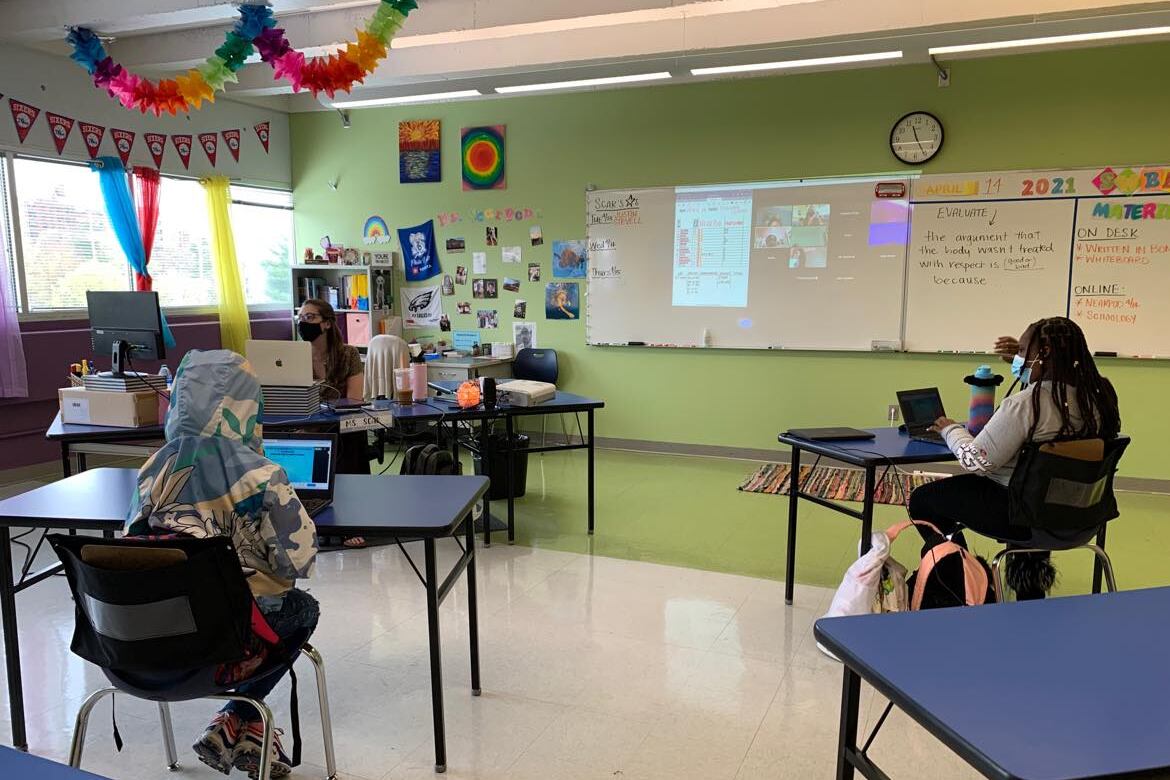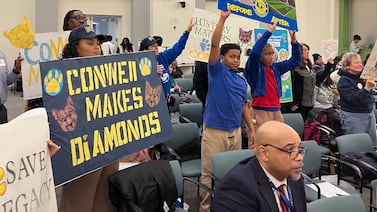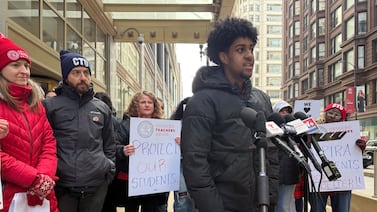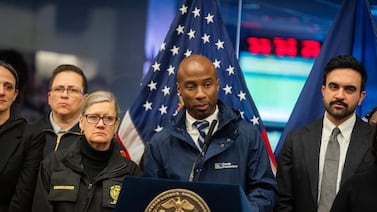A college education dean who has written extensively on educational equity testified Thursday at Pennsylvania’s school funding trial that gaps between need and available resources in schools are particularly stark in the state, where one in five children come from families living below the federal poverty line.
These gaps further disadvantage low-income students, said Pedro Noguera, dean of the Rossier School of Education at the University of Southern California. Poor students, disproportionately those who are Black and Latino but also some rural white students, have less access to high-quality teachers, college prep courses, and other academic resources while dealing with more barriers, such as poor health and family instability, he said.
“The disparities in Pennsylvania are great,” said Noguera, who has written dozens of articles and several books on educational inequity across the country and the impact of increased revenue on outcomes in previously underfunded districts. Noguera was called as an “expert” witness, as opposed to a fact witness, by the plaintiffs in the case – six school districts, three families and two statewide advocacy groups seeking to overhaul how education is paid for in the state.
He testified that 42% of Black children in Pennsylvania and 35% of Latino children live in conditions of concentrated poverty, meaning in neighborhoods where at least 30% of the residents are poor, numbers far above the national average of 19% of all students.
In schools with concentrated poverty, educators can be “overwhelmed” by student needs and the lack of resources to deal with them, Noguera said, leading to high teacher turnover that further erodes conditions for high student achievement. Teachers leave for wealthier districts where the pay and working conditions are better, he said.
The result of underfunding schools has broad societal implications, he said, because it leads to large numbers of people without the skills to gain well-paying jobs that support families. “The long-term loss affects all of us,” he added.
On cross examination, attorney Patrick Northen, representing House Speaker Brian Cutler, said some high-poverty districts in the state spend more per student than the state average, including Pittsburgh and Lancaster, one of the six plaintiff districts.
Under Northen’s questioning, Noguera acknowledged that some research shows that more revenue does not necessarily lead to higher student achievement. “Money alone is not the answer,” Noguera said, emphasizing that districts need to use funds on “proven strategies.”
This lawsuit, originally filed in 2014, is the first such case in Pennsylvania that has gone to trial. The plaintiffs sued on the grounds of both equity and adequacy, saying that the current system violates the state constitutional mandate for a “thorough and efficient system of education.” Commonwealth Court Judge Renée Cohn Jubelirer, who is hearing the case, must decide the standard for “thorough and efficient.”
Plaintiffs want the state’s school funding system to be overhauled, both by adding more money to the pot and distributing it more equitably. Through their cross examinations, Republican legislative leaders are mounting a defense that seeks to undermine the relationship between spending and academic achievement, while highlighting accomplishments of the plaintiff districts as evidence that the constitutional mandate is being met.
Philadelphia is not among the plaintiffs since it was under state control at the time the suit was filed. But the city has endorsed it and Philadelphia Superintendent William Hite spent Wednesday on the stand, testifying that Philadelphia lacks the resources it needs to adequately educate its students, about half of whom live below the federal poverty line and most of whom are Black and Latino.
Thursday morning, before Noguera’s testimony, Hite was cross examined by John Krill, an attorney representing Senate President Jake Corman. Krill questioned Hite about the five Philadelphia schools that were recently cited by the U.S. Department of Education as “Blue Ribbon” schools as well as 7,300 students who earned industry certifications – both accomplishments cited on the district’s own website.
Plaintiffs’ attorney Kristina Moon of the Education Law Center objected that information on the website is hearsay and is not in evidence. Krill argued it was relevant because “it contradicts the dire picture” that Hite presented in his direct examination.
Hite said he was “very proud” of the Blue Ribbon schools and the district’s Career and Technical Education program. As with other superintendents called to testify, he was put in the position under cross examination of treading a fine line between touting their districts’ achievements and making the case for more resources.
Noguera’s testimony continues Friday. Next week, the trial will resume on Tuesday. More Philadelphia witnesses are expected to testify, including Chief Financial Officer Uri Monson, a principal, and a school counselor.






